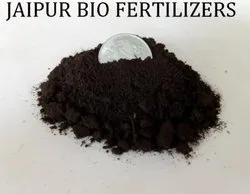Garden Manure
₹15.0
Product Details:
The minimum order quantity is 10,000 Kg.
The product is packaged in 50 Kg bags.
It is in powdered form.
The application of the product is in agriculture as a fertilizer.
The color of the product is brown.
The product is made in India.
Excessive use of chemical fertilizers has seriously impaired soil fertility. Research indicates that the overuse of fertilizers has caused a decline in grain production by depleting the soil’s organic carbon content.
To combat this threat, the use of bio-manure, such as Garden Manure, proves beneficial. Garden Manure is an abundant source of carbon and contains essential nutrients like nitrogen, phosphorus, and potassium (NPK). By using Garden Manure, the soil’s organic carbon levels are balanced, ensuring optimum productivity and soil fertility.
Specifications of Garden Manure:
Potassium as K20: 1.5%
Nitrogen as N: 2.0%
Phosphorus as P2O5: 0.51%
Zinc as Zn: 115 mg/kg
Calcium as C: 2.5%
Magnesium as Mg: 1.0%
Sulphur as S: 1.2%
Iron as Fe: 400 mg/kg
Organic Carbon: 36.5%
C:N Ratio: 18.3:1
Bulk Density: 0.88
pH: 7.4
Moisture Content: 30%
Beneficial Bacteria Tests:
Total Viable Bacterial Count as N Bacteria: 1.1 x 10^6 CFU/gm
Total Viable Bacterial Count as P Bacteria: 1.1 x 10^6 CFU/gm
Unique Benefits of Garden Manure:
Enhances the physical, chemical, and biological properties of the soil.
Improves soil structure, air circulation, and water retention capacity.
Retains nutrients, preventing them from leaching away from plant roots.
Contains both essential micro-nutrients (calcium, sulphur, magnesium, iron, etc.) and macro-nutrients (nitrogen, phosphorus, and potash) crucial for plant growth.
Beneficial microbes break down crop residues, improving soil texture and nutrient release.
Increases yield and enhances the quality of field, vegetable, tree, and fruit crops.
Can be conveniently applied as both base-dressing and top-dressing.
Ameliorates alkaline and saline/sodic soil conditions.
Facilitates root growth by enhancing soil structure.
Ultimately, it leads to improved crop yield by enhancing soil fertility and structure.
Suitable for all types of field crops, vegetable crops, orchards, kitchen gardens, and flowers.
You must be logged in to post a review.
Q & A
Organic manure is typically free from synthetic chemicals, minimizing the risk of nutrient leaching and water pollution.
Organic manure enhances soil structure, fertility, and water retention, promoting long-term sustainable agriculture.
Organic manure production generally involves fewer energy-intensive processes, leading to lower greenhouse gas emissions.
Organic farming practices often encourage biodiversity, supporting natural ecosystems and wildlife.
General Inquiries
There are no inquiries yet.



Reviews
There are no reviews yet.